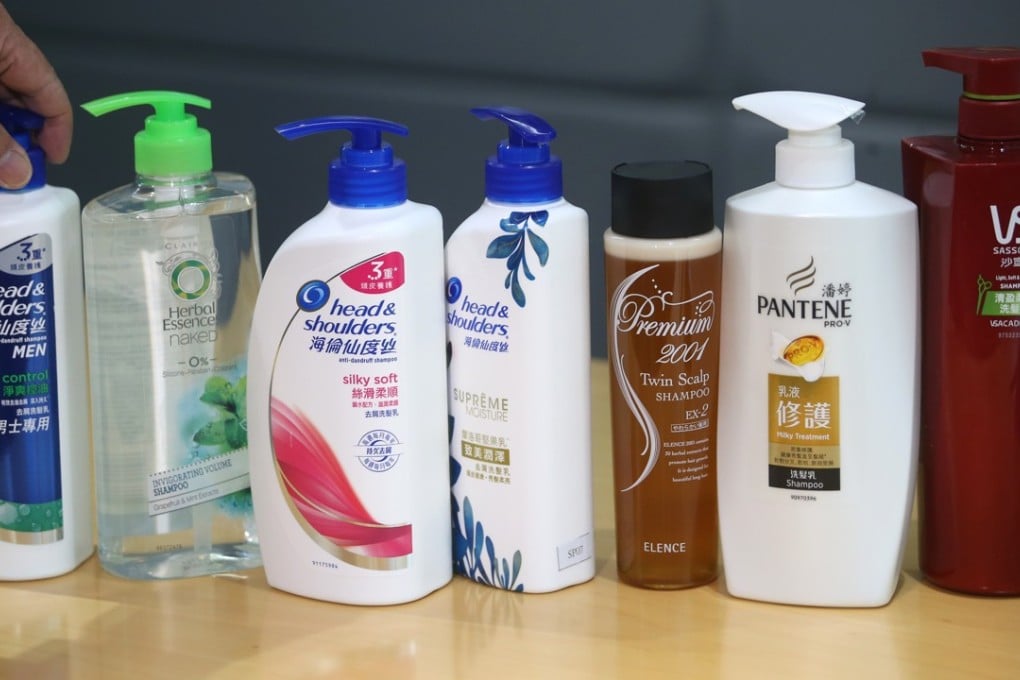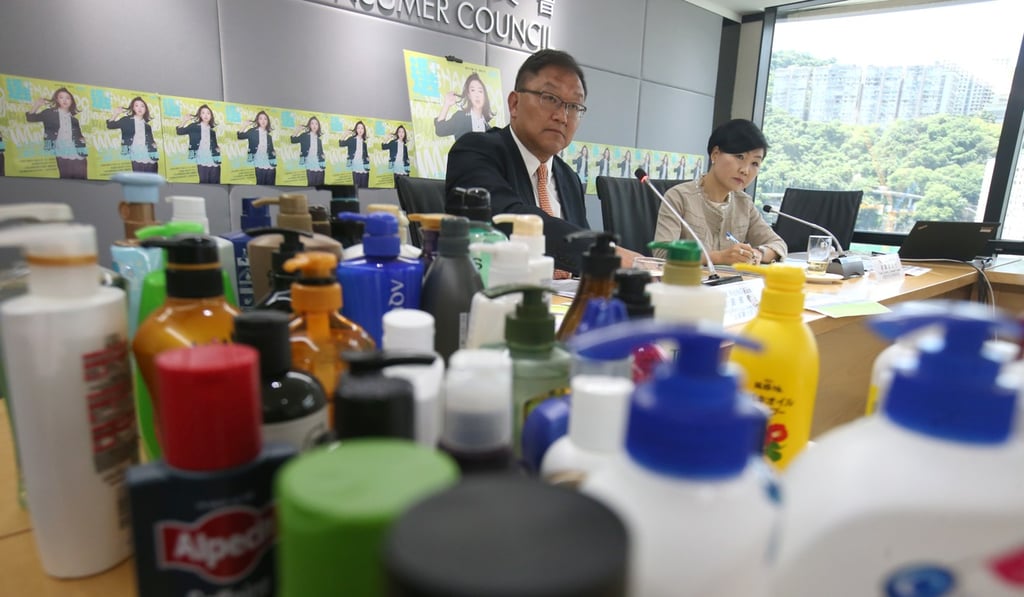38 out of 60 shampoos found to contain harmful manufacturing solvent in tests by Hong Kong consumer watchdog
Consumer Council says more than half of samples tested positive for 1,4-dioxane, an ether US authorities say could affect the liver and kidneys in the long term

Hong Kong’s consumer watchdog has found 38 out of 60 shampoo samples it tested contained a harmful solvent used in manufacturing, with seven exceeding the limit recommended by the European Union.
The Consumer Council also found 20 per cent of the shampoos contained allergy-causing preservatives, and one even tested positive for a heavy metal.
But the agency insisted none of the samples constituted an “immediate” health risk, and only urged those with sensitive skin to be extra cautious when making their choices.
A total of 60 shampoos available in Hong Kong were collected for examination. Most were general shampoos not targeting specific hair problems or types, but some claimed to alleviate hair loss.
Revealing the test results at their monthly briefing on Tuesday, the council said 38 contained 1,4-dioxane, an ether commonly used as a solvent in manufacturing.
